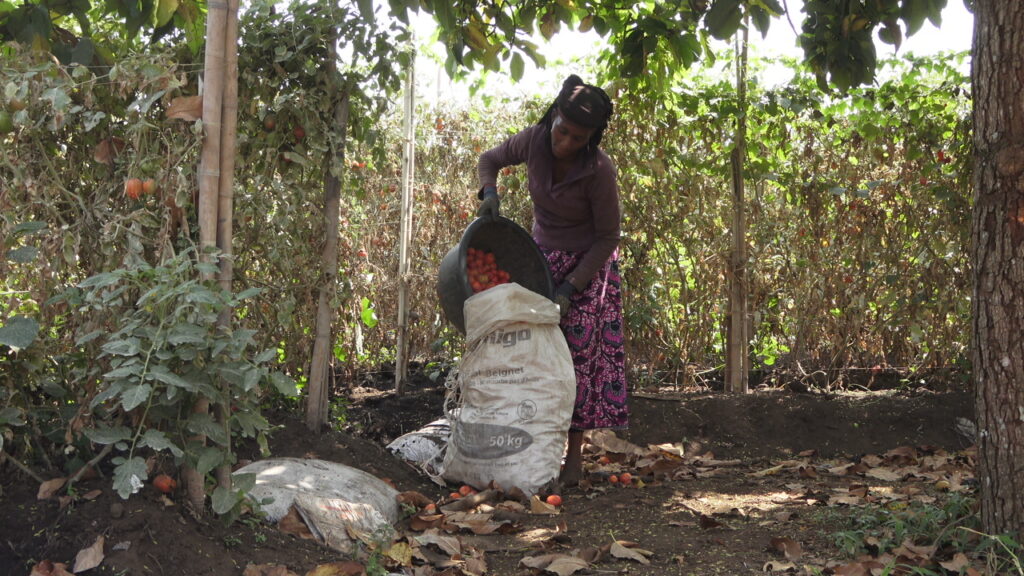PALM-TREEs Project: Strengthening Agricultural Resilience in Cameroon
/
Foumbot, located in the Noun department of the Western region of Cameroon, was the focus of a launch workshop for the PALM-TREEs project, organised by the African Women’s Network for Sustainable Development (REFADD) in partnership with the University of Yaoundé 1. This event, which took place on 8th and 9th January 2025, was presided over by the major administrative authority of the area, brought together key stakeholders from the agricultural sector as well as local authority representatives.
In his welcome address, the mayor of Foumbot expressed great joy and pride in welcoming participants to the cosmopolitan commune of Foumbot. He highlighted the importance of addressing the crucial issue of a pan-African and transdisciplinary perspective on marginalized communities, particularly in the context of extreme events and climate change. The mayor emphasized the need for collaboration among researchers, policymakers, and local communities to forge sustainable solutions that incorporate traditional knowledge and practices.
According to Monique Yigbedek, Regional Coordinator of REFADD, tomatoes generate over 129 billion CFA francs for the Cameroonian economy. She emphasized the importance of this workshop, which aims to identify challenges related to tomato cultivation in Foumbot, involving all segments of the population. “We will collaborate with researchers to develop techniques aimed at improving the cultivation, marketing, and transport of tomatoes,” she stated.
Professor Wilfried Pokam, Central Africa Coordinator of the project, highlighted the difficulties faced by producers, including threats from pests and challenges related to storage and transport, which impact their income. He also stressed the importance of understanding risk profiles by considering social and economic dimensions. By sharing data on the impacts of climatic events, he emphasized the need to develop nature-based solutions to enhance tomato production in a participatory and co-creative manner. He further underscored the significance of a transdisciplinary approach that combines academic and traditional knowledge to design sustainable solutions suited to local needs.
The workshop also addressed the ongoing threat posed by invasive pests, which have led to significant crop losses and affected the livelihoods of local farmers. Augustin Pekorne, a tomato producer, shared his struggles with pest infestations that compromise the quality of his harvest. “The pests cause our fruits to spoil, impacting our sales and income,” he lamented. Ebenizer Moupe, another farmer, echoed these concerns, noting that the quality of his produce often deteriorates by the time it reaches market due to pest damage.
Representatives from various ministries including Social affairs, women empowerment and Family, Agriculture and Rural development, meteorology and Environment and Nature protection, presented their areas of action, emphasizing the importance of training for vulnerable groups such as women and people with disabilities. Key points included the need for access to information and health protection for producers, as well as addressing financing and agro-meteorological data. Discussions highlighted challenges such as pest resistance and market access for tomato producers, with calls for partnerships and better information sharing.
The administrative authority supported this initiative, noting that vulnerability to climatic impacts varies according to social, economic, and gender factors. Discussions also illuminated the issue of post-harvest challenges, with producers reporting that buyers often dictate prices during periods of oversupply. For producers, the focus is primarily on proposing approaches that enable better yield, improved storage of produced tomatoes, and better market access. The promised processing plant has yet to materialize after years of anticipation.
Regular flooding in the region has prompted Ibrahim Nchoutnji, head of the Agricultural Research Institute local station in Foumbot, to recommend regular maintenance of drains to facilitate rainwater drainage, whilst the agricultural district delegate pledged to support producers in seeking solutions to enhance the quality of their produce.
The PALM-TREEs project adopts an innovative approach to address the needs of vulnerable communities affected by extreme events in sub-Saharan Africa, particularly in Cameroon. By integrating local knowledge and promoting an inclusive and transdisciplinary approach, this action research project aims to strengthen the resilience of the most vulnerable members of the community against the impacts of extreme climatic events. The workshop in Foumbot thus sets the tone for research that will ultimately contribute to sustainable tomato production in Cameroon and improve the resilience of producers and communities in the face of climatic uncertainties.

Categories
Countries
CLARE Pillars
CLARE Themes
CLARE Topics
Published
CLARE Projects
CLARE Partners


